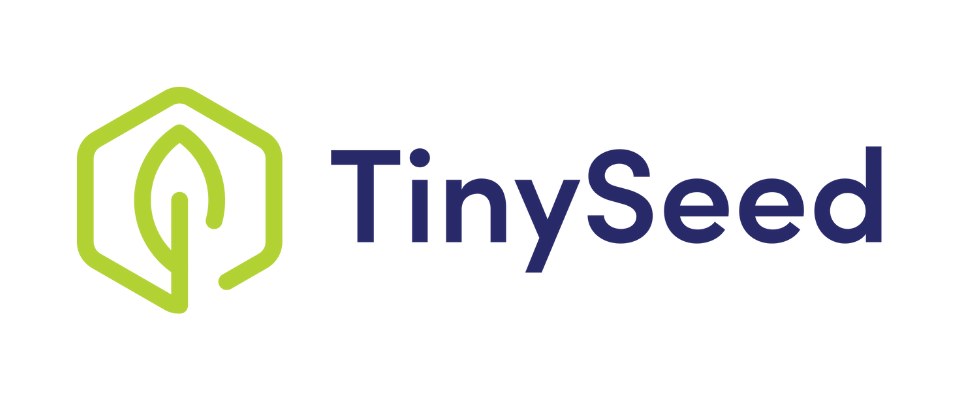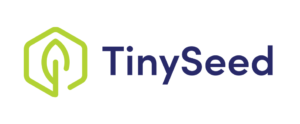Why apply to TinySeed?
Editor's Note:
The founders applied to TinySeed due to its focus on sustainable growth, non-dilutive support, and alignment with their bootstrapping philosophy. The appeal also stemmed from its straightforward application process, recommendations from acquaintances, and Rob Walling’s insightful content on YouTube.
Here’s what founders had to say about why they applied to TinySeed…
- Choosing TinySeed for one founder stemmed from StatusGator’s journey of transitioning from a bootstrap project to a sustainable business. Inspired by Rob Walling’s podcast and seeking non-dilutive growth support, TinySeed’s focus on steady growth and straightforward application process appealed to the founders, aligning with their values of equity and independence.
- With Omega Benefits earning $8,000 in monthly revenue and seeking funds for growth, TinySeed stood out due to its focused investment strategy for B2B SaaS companies. Recommended by an acquaintance just three weeks before its spring application cycle, the timing aligned perfectly with one founder’s decision.
- What attracted another founder was their alignment with the bootstrapping philosophy and their preference for sustainable, revenue-based growth over traditional venture capital funding. The founder resonated with TinySeed’s supportive approach to bootstrappers, as opposed to the pressure often associated with VC funding, ultimately leading them to join the accelerator.
- One founder chose TinySeed to accelerate a side project to a full-time venture, recognizing it as a catalyst for growth and support.
- Drawn to TinySeed after encountering Rob Walling’s insightful content on YouTube, one applicant applied to the accelerator program with no expectations.

Colin Bartlett, Co-Founder @ StatusGatorThis decision to join TinySeed marked a significant shift in our approach to scaling StatusGator, aligning with our values of sustainable growth without sacrificing equity or independence.
What does application process look like?
Editor's Note:
The founders praised TinySeed’s streamlined application process, which focused on key metrics like revenue and growth trajectory, reflecting the program’s clear emphasis on B2B SaaS companies. They appreciated the hands-on approach during interviews, providing valuable insights into their businesses.
Here’s what the founders had to say about the structure of TinySeed’s application process…
- One founder discovered TinySeed’s application process refreshingly straightforward, requiring only a one-pager completed quickly, primarily focused on revenue, growth trajectory, and team information.
- Similarly, another found TinySeed’s application process notably smooth and efficient, with just 20 questions reflecting their clear focus on B2B SaaS companies with proven product-market fit.
- The application process begins with an online form asking for your metrics and goals. Following an initial screening, two rounds of interviews provided a deeper insight into the program, with discussions led by the program manager and one of TinySeed’s founders, highlighting their hands-on approach and interest in understanding founders’ mindsets alongside their business models.
- TinySeed’s application process begins with an initial interview with the program manager to verify monthly recurring revenue (MRR) accuracy and assess fit for further discussion with investors. This is followed by a more in-depth conversation with TinySeed’s main investors, focusing on the company’s goals and potential for mutual benefit.
What are some tips for the application?
Editor's Note:
The founders recommended applying to TinySeed, highlighting the valuable feedback and growth opportunities provided, regardless of your outcome. They stressed the importance of demonstrating growth potential and a willingness to evolve personally and professionally, aligning with TinySeed’s focus on sustainable businesses.
Here are the founders’ tips on TinySeed’s application process…
- Just go for it. While startups with some traction or revenue would benefit the most, even those in the conceptual stage can consider applying. Taking the step to apply could lead to transformative outcomes, as the process is quick and the rewards are extensive.
- The application process itself is incredibly valuable, offering insightful feedback about your business. It serves as a mirror, reflecting the strengths and areas for improvement. If you find common themes in the feedback, particularly regarding weaknesses, it’s crucial to take that seriously and address those areas.
- The emphasis on the founder mindset during the application also highlights their focus on the personal attributes of the individuals behind the startups.
- TinySeed is particularly interested in startups not necessarily aiming for the traditional venture capital route but rather those looking to build a sustainable and profitable business
- It’s important to understand that they are looking for companies showing growth and the ambition to scale beyond a solo operation. If you apply once and don’t get accepted, don’t be discouraged.
- Accelerators are looking for founders who are open to evolution—not only in their business model but also in their personal development throughout the program. It’s essential to acknowledge where you currently are, your areas for growth, and how the program can bridge that gap, transforming both you and your company by its conclusion
Does TinySeed provide funding for equity?
Editor's Note:
TinySeed’s funding support typically ranges from $120,000 to $220,000, with equity stakes averaging around 10-12%, offering fair and flexible terms tailored to each startup’s needs and growth trajectory.
Here’s what the founders had to say about TinySeed’s funding support…
- TinySeed usually aims for a 10% equity stake in companies it invests in, valuing them fairly. Their approach prioritizes sustainable growth and offers flexibility in equity stakes, accommodating various paths to success. Additionally, they have a unique payback scheme for lifestyle businesses, ensuring fair returns on their investment.
- TinySeed typically provides funding between $120,000 to $220,000, acquiring approximately 10-12% equity in return. This straightforward arrangement enables startups to scale while aligning TinySeed’s interests with the future success of these ventures.
- They provide initial funding tailored to each startup’s needs, with amounts varying based on the stage and circumstances. While maximum investments can reach $220,000, specific figures and equity percentages are determined case by case, ensuring a customized approach to support each startup’s growth.

Rich Benci, Founder @ Omega BenefitsTinySeed has a unique payback scheme based on dividends, calculated on the founder’s salary exceeding a certain threshold, ensuring a fair return on their investment without forcing a premature exit.
How is TinySeed's program structured?
Editor's Note:
TinySeed’s program fosters remote collaboration via Slack, supplemented by mentorship and playbook sessions to accelerate startup growth through systematic strategies and external insights. With a structured one-year format focusing on sales and pricing strategies, B2B SaaS founders benefit from tailored support addressing their specific growth challenges.
Here’s what founders had to say about TinySeed’s program structure…
- TinySeed’s day-to-day operations are remote, centered around vibrant discussions and idea-sharing on Slack channels. Regular mentorship and playbook calls offer systematic growth strategies, combining TinySeed’s formula with external mentor insights to accelerate startups’ growth.
- TinySeed’s intensive one-year program features a structured playbook and bi-weekly modules on sales and pricing strategies. The program’s remote format and special sessions with guest experts directly benefit B2B SaaS founders, enriching their learning experience and supporting their ventures.
- TinySeed’s 12-month program starts with a community-building in-person event, followed by playbook sessions covering pricing and marketing strategies. With regular mentor calls and peer learning sessions, the program offers comprehensive support tailored to address the challenges of startup growth.
- The TinySeed Accelerator commenced with a three-day retreat in Scottsdale, Arizona, offering networking and informative sessions. Its emphasis on community and mentorship, alongside a year-long virtual format with retreats, aligned well with my values and growth strategy for Civic Review.
- TinySeed’s program offers a varied daily routine, transitioning from part-time to full-time project focus. Weekly calls cover crucial growth topics like pricing strategies, while a supportive Slack community of fellow founders facilitates networking and problem-solving.
What are some standout aspects of the program?
Editor's Note:
The founders emphasized TinySeed’s investment, mentorship, and accountability as standout features, fueling growth and refining strategies. Additionally, the program’s founder-centric approach, enabling salaries and fostering networking, was crucial for dedicated commitment and genuine connections among peers.
Here’s what the founders had to say about TinySeed’s standout features…
- The founders found three main highlights in the TinySeed experience: financial investment, mentorship, and accountability. While the capital fueled growth, mentorship from seasoned entrepreneurs and accountability from an invested investor were pivotal in refining strategies and maintaining high-performance standards.
- TinySeed’s founder-centric approach encourages founders to draw salaries, allowing them to focus entirely on their businesses without financial distractions. This support is crucial for founders transitioning to full-time commitment, fostering growth and stability by enabling them to dedicate themselves fully to their startups.
- TinySeed’s standout feature lies in its robust founder networking platform, facilitating meaningful exchanges of relatable advice and solutions among peers. Beyond business growth, the program’s mastermind groups foster genuine friendships, exemplified by plans for in-person meetups, enriching the overall experience.
- TinySeed taught one founder the power of taking swift action and embracing experimentation. For example, shifting to usage-based pricing led to seven new signups in just weeks, emphasizing the value of adaptability in the startup process.

Marty Aghajanyan, Founder @ JBoard’sWith hundreds of founders in a Slack channel, the platform for interaction was vast, allowing for a dynamic exchange of ideas and solutions. What made this particularly valuable was the relatability of the advice received.
Did founders find the program lacked anything?
Editor's Note:
The founders recommended that TinySeed improve by providing broader access to resources and events for larger teams, enhancing support for cash flow and accounting management, and increasing founder engagement through structured social events, especially for remote participants.
Here’s what the founders had to say about their challenges during the program…
- One founder highlighted a need for TinySeed to cater better to larger teams, suggesting broader access to resources and events beyond just the primary founder or small founding teams. They emphasised the potential for enhancing the program’s impact by facilitating direct exposure to knowledge and philosophies for all team members, especially at their stage of development.
- One founder struggled to pinpoint areas for improvement in TinySeed’s responsive feedback approach. However, they suggested enhancing support for cash flow and accounting management, especially for founders lacking finance backgrounds.
- One area for TinySeed’s improvement is enhancing founder engagement and resource utilization, possibly through structured, regular social events. More accessible events, especially for the European batch, could foster cohesion and support, addressing challenges of remote participation and isolation.
Final advice to consider before joining TinySeed?
Editor's Note:
The founders recommend applying to TinySeed for startups with traction or revenue due to its straightforward process and transformative potential. They advise aspiring applicants to apply without hesitation, highlighting the valuable feedback provided regardless of the outcome and emphasizing the importance of demonstrating growth and scalability.
Here are the founders’ final tips about TinySeed’s program…
- Startups with traction or revenue should apply to TinySeed, praising its straightforward process and transformative potential. While startups in the conceptual stage might benefit from focusing on product validation, those with revenue or traction could find significant benefits from joining the program, as evidenced by their own positive experience.
- To aspiring accelerator applicants, especially for TinySeed, one founder’s advice was clear: apply without hesitation. The process offers valuable feedback, serving as a mirror to identify strengths and weaknesses, benefiting your business growth regardless of the outcome.
- Consider TinySeed carefully, ensuring it aligns with your company’s vision. Its unique blend of financial support and invaluable mentorship can significantly benefit early-stage startups seeking actionable guidance for growth. If you value mentorship and strategic advice over funding alone, TinySeed might be the right choice for you.
- For aspiring TinySeed applicants, focus on demonstrating growth and scalability in your company. Persistence pays off, as many successful participants apply multiple times before acceptance, showcasing commitment to growth. Continuously refine your application and strategy, highlighting progress with each attempt.
- Prioritize learning and resilience. Another founder’s path to TinySeed included overcoming rejection and underscores the importance of persistence and adaptability. Embrace setbacks as opportunities for growth, refining your approach with each attempt to maximize your chances of success.

